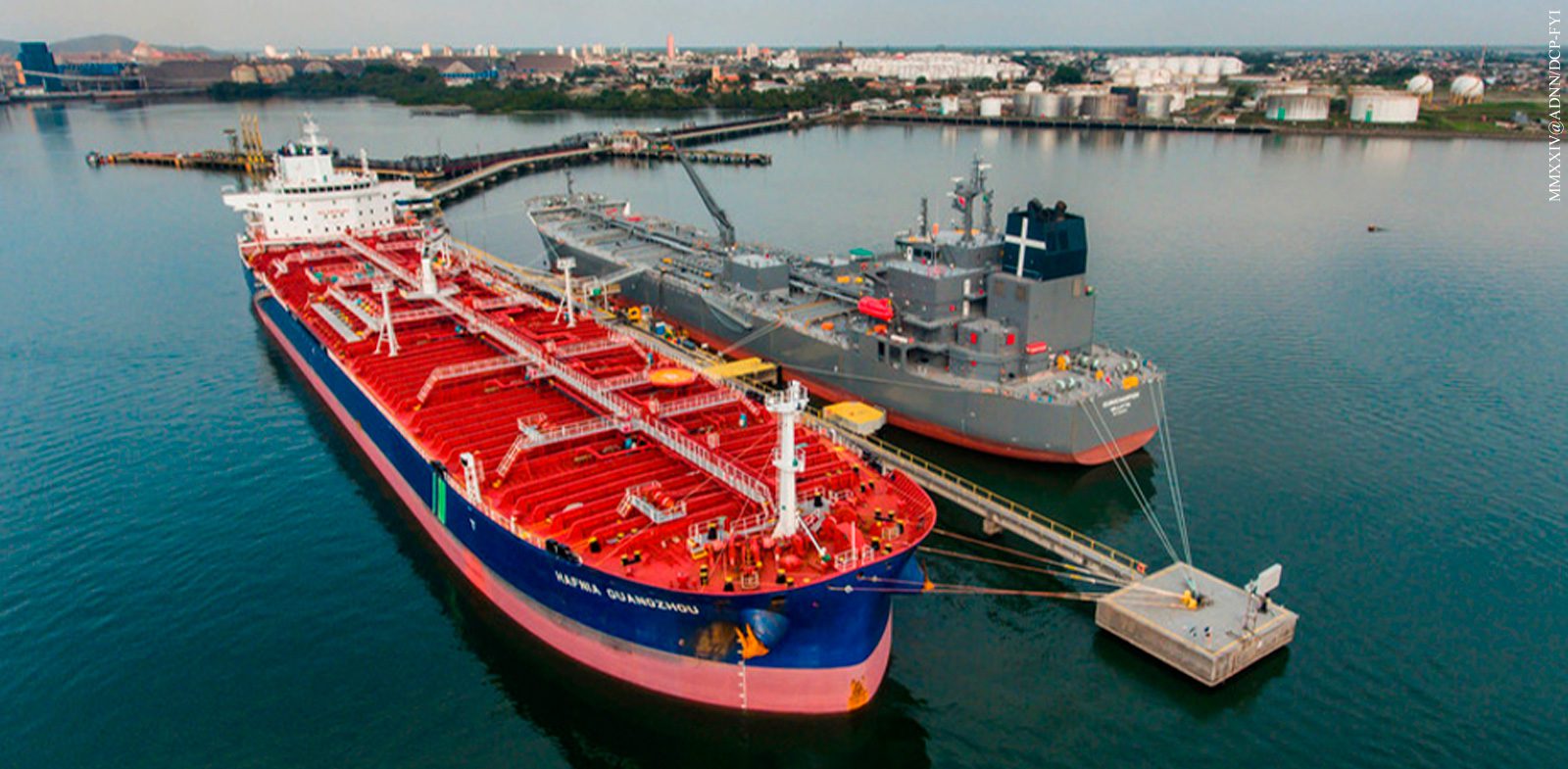In 2022, Brazil bought 101,000 tons of diesel from Russia. In just one year, the volume hit a record and rose to 6.1 million tons. The scenario reflects Europe’s response to the war in Ukraine.
(DW) Following Russia’s invasion of Ukraine, the European Union (EU) decided to cut its energy ties with the aggressor country, which for years had been its main source of energy. This decision had side effects that were felt in Brazil. With the European embargo on Russian oil and diesel, Brazil became the third largest importer of hydrocarbons from Russia, behind only China and Turkey, two nations historically less aligned with the West.
In 2022, Brazil imported 101,000 tons of diesel from Russia, totaling 95 million dollars in purchases. In 2023, it imported 6.1 million tons – an increase of 6,000% on the previous year – spending 4.5 billion dollars on this business. This increase made the country the largest importer of Russian diesel.
At times, more than 90% of the diesel imported by Brazil came from Russia. In the case of oil, there was a 400% increase in imports year-on-year.
“The trend observed throughout 2023, marked by an increase in imports of Russian diesel by Brazil, mainly replacing volumes from the United States and India, was significantly influenced by the full application of European sanctions on Russian diesel,” says Rystad Energy analyst Raphael Faucz. The movement began with smaller importers seeking to take advantage of the discounts offered by Russia, a strategy that was later also adopted by large companies, with the aim of maintaining competitiveness in the market, he says.
“As Russia has had to find new homes for its diesel amid European sanctions, Brazil has been a willing buyer,” says Kpler research analyst Matt Smith. Russia exports around 950,000 barrels of diesel a day, and was sending around 70% of this volume to the European Union and the United Kingdom before the embargo.
Cheaper product and high demand
The president of the Brazilian Association of Fuel Importers (Abicom), Sérgio Araújo, confirms the intention to seek lower prices among suppliers, and says that the result has been felt in Brazilians’ pockets. “Considering that there is competition in the primary supply of diesel, as well as in the distribution link of the supply chain, the discounts obtained on imports have been passed on to the prices at the pumps,” he adds.
Matthew Kohlman, director of refined products pricing in the Americas at Platts, part of S&P Global Commodity Insights, points to another aspect that has boosted imports. “Brazil’s economy is growing, especially agricultural markets that depend on diesel for transportation. Local refineries have increased production, but they still haven’t managed to keep up with demand,” he points out.
The issue is also seen as a priority for Brazil’s energy security, a country whose freight matrix is heavily dependent on diesel vehicles. “Without a doubt, imports must be considered a priority in order to guarantee national energy supply and security. The deficit in national production is around 30% of demand,” says Araújo.
Discomfort with the West and risks
For Faucz, the change in the import scenario was not driven by a deliberate public policy, but by the dynamism of private agents in search of the best market opportunities. “So far, there has been no significant scrutiny from the United States or the European Union regarding the flow of oil and oil products from Russia,” he says.
In his view, this is partly due to global concerns about inflation and fuel prices, especially in a critical election year in the United States, which have led these powers to adopt a more cautious stance on imposing additional pressures. “It is unlikely that there will be a significant increase in pressure from the West for Brazil to stop importing diesel from Russia,” he says.
In September 2023, the Russian government ordered a ban on fuel exports from the country in order to guarantee domestic supply. At the time, the move meant that Brazilian importers had to look for last-minute options. Regarding the scenario and possible risks, Araújo argues that the ban was for a short period. “We understand that there is no risk of operations being discontinued,” he says.
For Faucz, a suspension or reduction in Russian exports would cause an increase in prices on a global scale, consequently affecting the benchmark for local refineries in Brazil. In addition, Brazilian importers, faced with the need to look for alternatives in potentially less competitive markets, could face a reduction in their profit margins, which in turn would have a direct impact on the final price for consumers, with a possible increase in the cost of diesel at the pumps.

Scenario likely to continue in 2024
“For 2024, considering the continuation of sanctions on Russian cargoes, it is likely that the trend of imports of Russian diesel by Brazil will continue, with the country continuing with attractive discounts, and if market conditions continue to favor this option,” says Faucz.
According to Araújo, considering the expected rise in GDP in 2024, the strong correlation between activity and diesel consumption and the maintenance of the current supply of domestic product, the volume imported should be slightly higher than in 2023. “The increase in the biodiesel content in diesel will not affect the need for imports,” he added. “The expectation is that Russia will continue to offer the product at a discount, making it the best option for importers.”
*** Translated by DEFCONPress FYI Team ***
